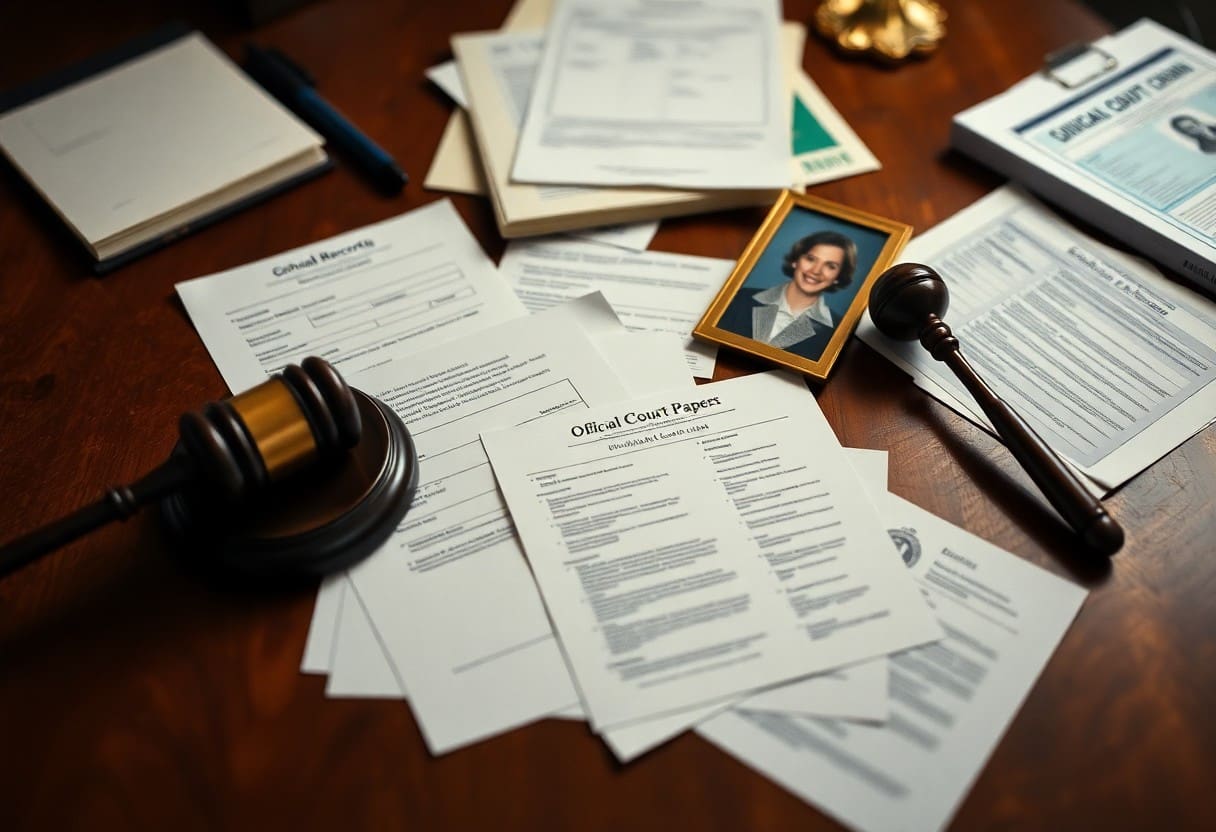Over the course of a custody case, documenting your child’s school, medical, and official records can significantly impact the outcome. These records serve as vital evidence of your child’s well-being and stability, illustrating your active involvement in their life. By compiling this information, you can demonstrate to the court your commitment as a parent, while also addressing any potential challenges posed by the other party. Ultimately, utilizing these records wisely can enhance your position and bolster your argument in securing a favorable custody arrangement. Contact Digital Forensic Squad for assistance with your custody case.
Key Takeaways:
- Collect and organize school records, medical reports, and any official documents that highlight your involvement in your child’s life and their well-being.
- Use these records to demonstrate the stability and support you provide, illustrating your commitment to your child’s education and health.
- Engage with professionals such as teachers, doctors, and counselors who can provide testimony or reports that support your case for custody.

Understanding Custody Cases
The custody case process can be intricate, involving various legal considerations to determine the best interests of the child. Courts prioritize stability and emotional well-being in making decisions about who should raise the child. Understanding what factors influence custody decisions is imperative for presenting a strong case.
Types of Custody
There are several types of custody arrangements that you should be aware of:
| Physical Custody | Refers to where the child lives. |
| Legal Custody | Involves making significant decisions about the child’s upbringing. |
| Sole Custody | One parent has both physical and legal custody. |
| Joint Custody | Both parents share physical and legal custody. |
| Visitation Rights | Schedule allowing the non-custodial parent to spend time with the child. |
Knowing these types can help you better understand your rights and options.
Importance of Evidence
After filing for custody, solid evidence is vital to substantiate your claims and show your suitability as a parent. Quality evidence can greatly influence the court’s ruling.
Considering the role of evidence, you should gather documents that demonstrate your involvement in your child’s life, including school records, medical records, and sworn statements from credible witnesses. Keep detailed records of your parenting time, financial contributions, and any incidents related to your child’s welfare. This documentation can help present a clear picture of your parenting abilities, and support your position in the custody proceedings. Focusing on these elements can significantly impact the outcome of your case.

School Records
Now, when pursuing a custody case, school records can serve as vital evidence reflecting your child’s stability and overall well-being. These records not only include academic performance but also details about attendance and behavior, which can strongly influence custody decisions. By compiling and presenting these documents, you demonstrate your active involvement in your child’s education and welfare, which can support your case in a significant way.
Academic Performance
An assessment of your child’s academic performance provides insight into their strengths and challenges, highlighting their educational progress. This information can reveal the level of support and resources they require from you as a parent. Positive academic performance can reflect a nurturing home environment, making it necessary to gather report cards, standardized test scores, and any teacher evaluations that showcase your child’s capabilities.
Attendance and Behavior
Academic attendance and behavior are key indicators of a child’s emotional and social development. A child’s consistent attendance showcases stability, while behavioral reports can reveal potential issues that may need addressing. Your ability to produce a history of good attendance and positive behavior can significantly strengthen your custody argument, demonstrating that you provide a supportive environment conducive to their growth. Conversely, excessive absences or behavioral incidents may indicate unresolved challenges that can adversely affect your case and should not be overlooked.
The correlation between consistent attendance and positive behavior often serves as a strong argument in custody cases. If your child has maintained a stable routine, it reflects well on your parenting skills, suggesting that you provide a nurturing environment. On the other hand, frequent absences or behavioral issues reported can raise red flags. It’s important to address these issues proactively, perhaps by engaging with school counselors to document any improvements or strategies you’ve employed to support your child, thus reinforcing your commitment to their well-being.
Medical Records
Your medical records play a vital role in your custody case, providing insights into your children’s health and wellbeing. These documents can demonstrate your commitment to their care, show that you are attentive to any special needs, and highlight your proactive involvement in seeking medical attention when necessary. Having accurate and up-to-date records is imperative as they can significantly influence a judge’s perspective on your parenting capabilities.
Health History
Records related to health history capture vital information about your child’s medical background, including immunizations, allergies, and previous illnesses. This data not only showcases your child’s general wellbeing but also your attentiveness as a guardian in managing their health needs, reinforcing your position as a responsible parent in any custody discussions.
Mental Health Considerations
On the topic of mental health, it’s important to include any relevant assessments, treatments, and referrals in your medical records. This documentation can shed light on your child’s emotional wellbeing and any professional interventions that may be necessary.
It’s imperative to provide a detailed account of your child’s mental health. Involvement in therapy or counseling can demonstrate your commitment to addressing any emotional concerns. Be sure to highlight positive developments or progress made through treatment. If there have been any serious issues, such as behavioral problems or diagnosed conditions, documenting these can help address any concerns the court may have regarding your child’s stability and overall mental health. The presence of strong support systems, such as trusted therapists or counselors, can also reflect positively on your parenting capabilities.
Official Records
Unlike your personal testimonies or statements, official records carry substantial weight in a custody case. They provide concrete evidence of your involvement and stability as a parent. Gathering these records can significantly boost your chances in court. For a deeper understanding of how to use these records effectively, refer to Winning Your Custody Case: The Power of Active Involvement.
Legal Documentation
At the heart of your custody case lies the importance of legal documentation. This includes anything from court orders, parenting plans, to any restraining orders if applicable. Documenting all relevant legal interactions consistently helps present a strong and organized case in court.
Social Services Involvement
Legal involvement with social services can significantly impact your custody case. They assess your home environment and parenting capabilities, documenting their findings in official reports. This information plays a pivotal role in the court’s decision-making.
Considering social services’ involvement, their findings can either strengthen your case or raise concerns. If they document positive interactions between you and your child, this can bolster your parenting credibility. Conversely, any negative assessments or recommendations from social workers may negatively influence your case. Ensuring that you are cooperative and responsive during assessments can turn this aspect into a strong asset for your custody claim.
Compiling and Organizing Evidence
Once again, assembling and categorizing your evidence is integral to building a strong custody case. You should ensure your documents, such as school reports, medical records, and any official correspondence, are compiled systematically. Keeping digital and physical copies organized will not only help you during the court process but also allow your attorney to present a clearer argument on your behalf.
Best Practices
To enhance the effectiveness of your evidence, adopt best practices like labeling each document clearly, creating a timeline of events, and using a binder or digital tool for easy access. This structured approach allows you to navigate your case efficiently and ensures nothing is overlooked.
Presentation in Court
To present your compiled evidence effectively in court, focus on clarity and relevance. Judges appreciate well-organized materials that are easy to follow, which supports your narrative and strengthens your case.
Hence, the method of presenting your organized evidence can significantly impact the judge’s perception of your situation. Using visual aids or summaries when discussing your important documents will enhance their understanding and help emphasize your positive attributes as a caregiver. Furthermore, consider practicing your presentation beforehand to ensure you communicate your points confidently and clearly, which can foster a more favorable outcome for your custody case.
Working with Professionals
Keep in mind that collaborating with professionals can significantly enhance your custody case. Legal experts and experienced witnesses often provide valuable insights and evidence that can strengthen your position and promote a more favorable outcome.
Legal Counsel
Counsel is your first line of support when navigating custody disputes. Your attorney will guide you through the complexities of the legal system, advising you on strategies to present your case effectively. Having an experienced lawyer enables you to stay informed and confident as you advocate for your rights and your child’s best interests.
Expert Witnesses
An expert witness can play a vital role in presenting supportive evidence in your custody case. These professionals provide objective insights based on their expertise, which can help clarify critical issues for the court.
Indeed, expert witnesses are instrumental in providing testimony that validates your claims. They can highlight aspects like your child’s emotional needs and your parenting abilities, offering a professional perspective that can sway the judge. By engaging the right experts, you can ensure your arguments are backed by credible evidence, potentially shifting the court’s view in favor of your custody arrangement. Always choose witnesses who have relevant credentials and a history of experience in custody matters to enhance the strength of your case.
To wrap up
With this in mind, gathering school, medical, and official records can significantly bolster your custody case. These documents provide concrete evidence of your child’s well-being and your involvement in their upbringing. By staying organized and presenting these materials clearly, you enhance your position when advocating for your parental rights. Additionally, ensuring that all records are accurate and up to date can demonstrate your commitment to providing the best care for your child. Investing time in this process can pave the way for a more favorable outcome in your custody proceedings.
FAQ
Q: How can school records support my custody case?
A: School records provide valuable insights into a child’s daily life, academic performance, and social interactions. These records can demonstrate a stable educational environment, which is often favored by courts when determining custody arrangements. Information such as report cards, attendance records, and behavioral reports can help illustrate the child’s needs and the kind of support each parent can provide. Additionally, testimonials from teachers or school counselors can further strengthen your case, showcasing the child’s development and wellbeing in your care.
Q: What type of medical records should I gather for my custody case?
A: When preparing for a custody case, it’s important to compile medical records that outline your child’s health history, any ongoing health issues, and the care they have received. This includes vaccination records, reports from doctor visits, and any specialist consultations. These documents can provide evidence of the physical and emotional well-being of your child, which can be a determining factor in custody decisions. Furthermore, if one parent is more involved in managing the child’s health, it can highlight the commitment and ability to provide proper care.
Q: How do official records contribute to resolving custody disputes?
A: Official records, such as court documents and previous custody agreements, play a significant role in custody disputes as they provide a legal background to the case. These documents can outline past agreements and any changes in circumstances that may affect the current custody arrangement, such as relocations or changes in income. Including records of any previous court orders, mediation results, or parenting plans can help to show the court that you are serious about following legal guidelines and promoting your child’s best interests. This documentation can be crucial in demonstrating your commitment to responsible parenting.

